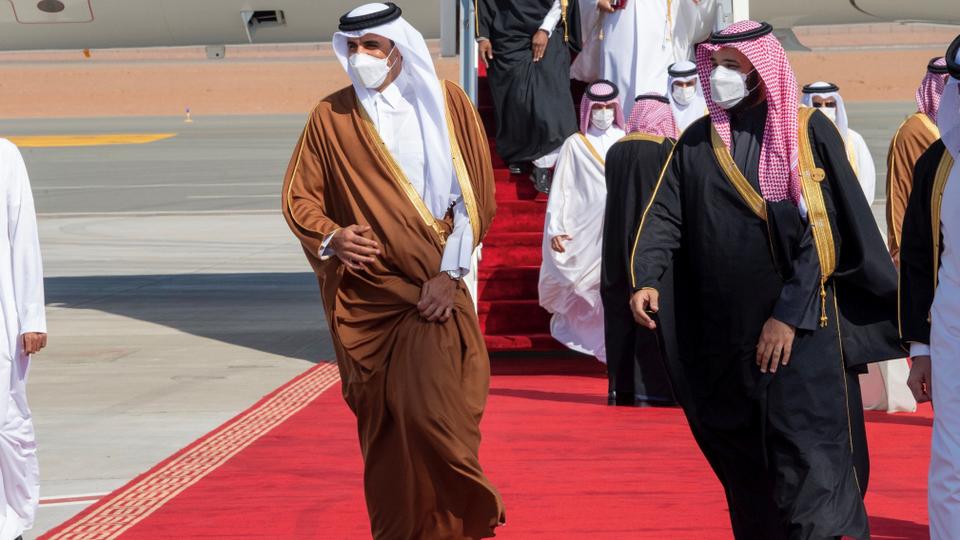UN rights expert welcomes ‘positive first step’ toward détente in Gulf
Saudi Arabia’s action in lifting sanctions against Qatar is a “positive first step” towards normalized relations in the Gulf region, a UN independent human rights expert said

“I am encouraged by the recent decision of the Kingdom of Saudi Arabia to open land, sea and airspace borders with Qatar and invite Qatar’s Emir to attend the Gulf Cooperation Council’s (GCC) summit in Saudi Arabia, which apparently could not have happened without the support of other three countries”, said Alena Douhan, UN Special Rapporteur on unilateral coercive measures and human rights.
Also read: Saudi Arabia to do away with key restrictions on foreign workers
“I also commend Kuwaiti and the United States mediation efforts”, she added.
Mending ‘Gulf rift’
On 5 January, the Supreme Council of the GCC held its 41st session of the Heads of States summit and issued the Al-Ula Declaration promoting coordination and integration among the GCC countries.
In response, Secretary-General António Guterres issued a statement expressing his gratitude to those from the region and beyond, “who worked tirelessly towards resolving the Gulf rift”.
Meanwhile, the UN expert welcomed “the ongoing constructive engagement between Qatar and the four States and hope that there will be other positive steps soon”.
In 2017, Saudi Arabia, UAE, Bahrain and Egypt severed diplomatic and economic ties with Qatar, accusing the nation of supporting terrorist organizations groups and overly-close ties to Iran. They insisted that Qatar comply with a list of demands.
Although Qatar denied all the allegations, the four countries closed their airspace as well as land, air and sea borders to the country.
Also read: 6 Gulf Arab countries back extending UN arms embargo on Iran
Infringing on human rights
The Special Rapporteur maintained the sanctions had harmed Qataris’ fundamental rights and freedoms, including those relating to family life, education, work, health and access to justice.
The measures also affected Qatari students studying abroad and Muslims wanting to make the Hajj and Umrah pilgrimages to Saudi Arabia.
“The decision of the Kingdom of Saudi Arabia to open the land, sea and airspace borders with Qatar is a positive first step”, said Ms. Douhan.
“I urge the United Arab Emirates, Bahrain and Egypt to follow suit, and ask four Gulf States to ensure meaningful reparation to the victims of human rights violations caused by the sanctions, including couples in mixed marriages and their children, migrant workers who lost their jobs and benefits, Qatari nationals with properties, jobs or businesses in those countries that imposed the sanctions, and many others”.
Also read: $15 billion project: Gulf countries to be linked by trains
After a two-week visit to Qatar last November, the independent UN expert had called on the five countries to resume cooperation and to settle political disputes on the basis of international law.
UN aviation weighs in
At the same time, the International Civil Aviation Organization (ICAO) welcomed the announcement on easing Gulf airspace restrictions, which the president of its 36-member governing body maintained would “help assure that the important socio-economic benefits of international air connectivity can be better optimized among all the countries concerned”.
Also read: Mideast at ‘critical threshold’ in virus numbers: WHO
“ICAO‘s role is to work with and among sovereign States to ensure more open skies globally, and continuously improving levels of aviation safety, security, and sustainability”, said Council President Salvatore Sciacchitano.
And ICAO Secretary General Fang Liu welcomed the new developments from the Gulf, recalling that the ICAO Secretariat, through its Regional Office in Cairo, had rapidly established contingency routes to ensure the safety and regularity of international flights in and out of Qatar when the restrictions were first imposed.